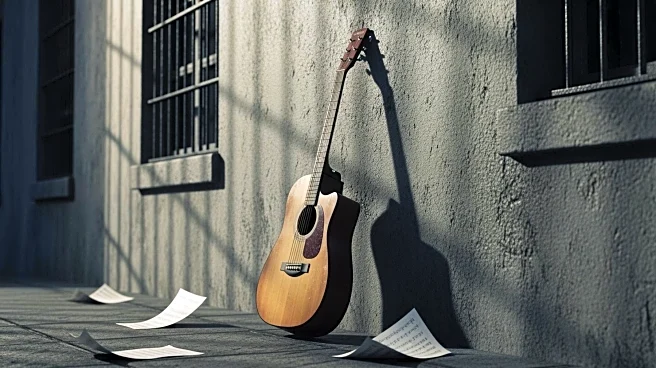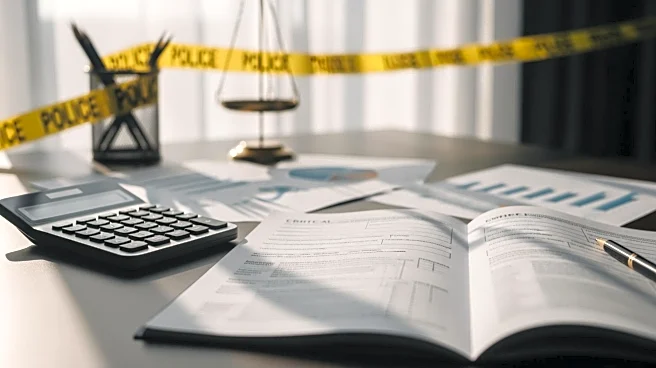What's Happening?
Diana Loginova, an 18-year-old street musician known by her stage name Naoko, has become a symbol of defiance in Russia after being repeatedly detained by authorities. Her band, Stoptime, gained popularity over the summer with performances in St. Petersburg
featuring songs critical of President Putin's war in Ukraine. Loginova was first arrested for organizing a 'mass simultaneous gathering of citizens' during a performance, which authorities claimed disrupted public order. She has been rearrested twice on similar charges and for petty hooliganism, resulting in multiple prison sentences. Her case has drawn significant attention from Russian state news agencies and independent media, with supporters advocating for her release. Loginova's lawyer has refrained from discussing the case while she remains incarcerated.
Why It's Important?
Loginova's repeated arrests highlight the Kremlin's ongoing efforts to suppress dissent and control public expression. Her case underscores the risks faced by artists and musicians who challenge the government's narrative, particularly in a country where dissent is increasingly stifled. The situation reflects broader concerns about freedom of expression in Russia, as authorities use legal measures to intimidate and silence critics. The crackdown on Loginova and her band serves as a warning to others who might consider using art as a form of protest, potentially stifling creative expression and discouraging public demonstrations against government policies.
What's Next?
As Loginova's current sentence nears its end, the possibility of further legal action remains. Human rights activists warn that 'carousel arrests' could keep her in detention indefinitely, setting a precedent for prolonged imprisonment of dissenters. Supporters continue to raise awareness and funds for her legal defense, while musicians inspired by her case perform in solidarity. The Kremlin's response to this situation may influence future actions against artists and public figures who oppose its policies, potentially leading to increased international scrutiny and pressure on Russia's human rights record.
Beyond the Headlines
Loginova's case raises ethical questions about the use of art as a form of protest and the role of musicians in political movements. It also highlights the cultural impact of government repression on young people, who are increasingly using social media and public performances to express dissent. The situation may lead to a shift in how Russian youth engage with political issues, as they navigate the risks associated with public expression. Additionally, the international community's reaction to Loginova's plight could influence diplomatic relations and discussions on human rights in Russia.


















